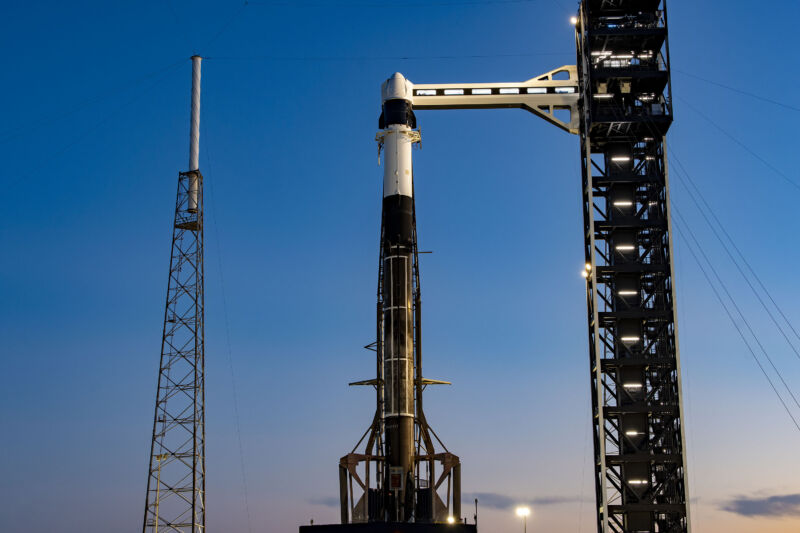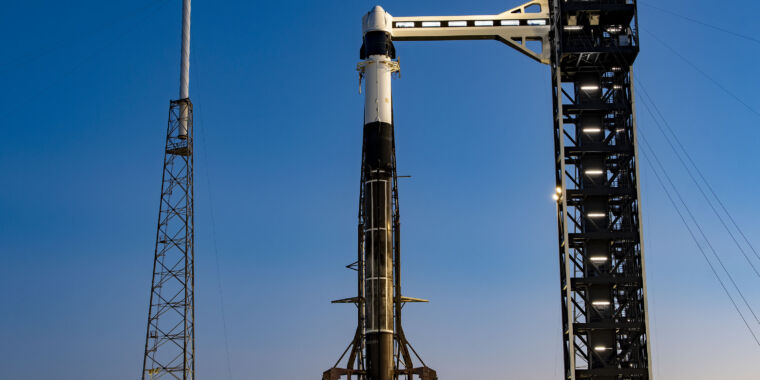
SpaceX
NASA on Tuesday confirmed that it is delaying the launch of its next astronaut mission to the International Space Station, Crew 9, until at least September 24. This is a significant slip from the previous date of August 18.
The space agency said the delay was necessary for “operational flexibility” as it continues to deliberate on the viability of Boeing’s Starliner spacecraft. In the release, NASA stated, “This adjustment allows more time for mission managers to finalize return planning for the agency’s Boeing Crew Flight Test currently docked to the orbiting laboratory.”
NASA also cited other reasons for the delay, including a deconfliction of traffic at the space station, such as a Soyuz launch scheduled for mid-September.
More details coming Wednesday
The announcement follows more than a day after Ars initially reported that the launch would slip to no earlier than September 24 to account for issues with Boeing’s Starliner spacecraft, which has been docked to the International Space Station for two months. Initially Starliner’s crew test flight was supposed to be an eight-day mission, but NASA and Boeing engineers have been evaluating some faulty thrusters observed during the trip to the orbiting laboratory.
The delay gives NASA more time to determine the flightworthiness of Starliner and whether it is safe to bring its two crew members, Butch Wilmore and Suni Williams, home. However, as Ars reported Monday, there is another reason for the delay—the need to update Starliner’s flight software should an autonomous undocking be preferred.
Well-placed sources said the current flight software on board Starliner, as configured, cannot perform an automated undocking from the space station and entry into Earth’s atmosphere. It will take about four weeks to update and validate the software for an autonomous return, should NASA decide it would be safer to bring Wilmore and Williams back to Earth inside a Crew Dragon spacecraft.
The NASA news release is silent on this issue, but a news conference scheduled for 12:30 pm ET on Wednesday will offer reporters an opportunity to ask questions about the capability of Starliner to fly back to Earth without crew members on board the vehicle. The release also did not specify whether two or four astronauts will launch inside the Crew 9 spacecraft. It is likely NASA has not made this decision yet.
Nelson to make final decision
In regard to NASA’s deliberations about the viability of Starliner, the news release says this: “Starliner ground teams are taking their time to analyze the results of recent docked hot-fire testing, finalize flight rationale for the spacecraft’s integrated propulsion system, and confirm system reliability ahead of Starliner’s return to Earth. NASA and Boeing continue to evaluate the spacecraft’s readiness, and no decisions have been made regarding Starliner’s return.”
Ars had the opportunity to speak with NASA Administrator Bill Nelson on Tuesday afternoon as the space agency put out its news release. Asked if he had confidence in the decision-making process at NASA surrounding whether to return Wilmore and Williams on Starliner, Nelson replied, “Yes, I do. I especially have confidence since I have the final decision.”
NASA’s update slipped in one other notable piece of news. The Crew-9 mission is now expected to launch from Space Launch Complex 40 at Cape Canaveral Space Force Station in Florida. This will be the first crewed launch from this complex, which SpaceX has built up in addition to its crew tower at Launch Complex 39A at nearby Kennedy Space Center. This will deconflict with 39A pad preparations for NASA’s Europa Clipper mission, which may launch in October from there on a Falcon Heavy rocket.

